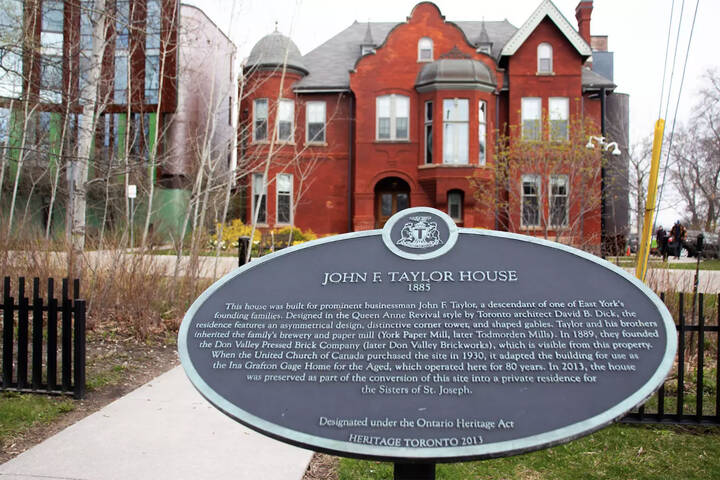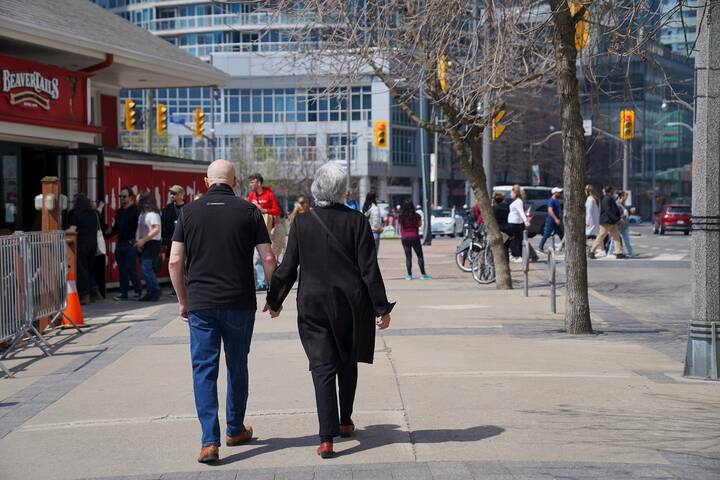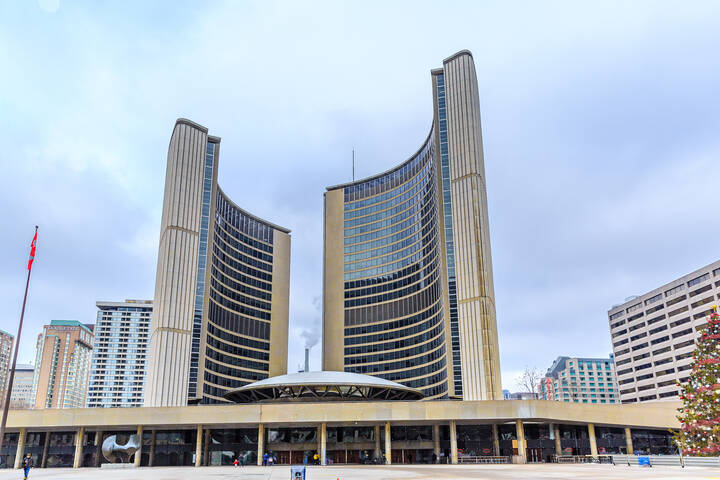
Why it might make sense to license cyclists in Toronto
There's been a lot of ink spilled the last couple of days as a result of the city's public works and infrastructure committee meeting on Wednesday. The topic? The possibility of the city introducing a regime to license cyclists. Yesterday, this site laid out five reasons why licensing cyclists in Toronto is a bad idea. Since this idea is essentially at the brainstorming stage, a a time at which it might be fair to say there's no such thing as a bad idea, I thought it was worth posing a counter-argument.
1. It costs too much
This is potentially true, but we can't know that without an actual proposal (or proposals) on which city staff can do a comprehensive study. What's the proposed fee? How many potential licensees are there? What level of enforcement is ideal? What level of staffing is needed to manage the process? Are there existing systems that can be leveraged to mitigate the cost? Meanwhile, while we can argue about the role of government in society, I think most of us can agree that helping keep its citizens safe is a reasonable use of public funds. If licensing can contribute to that, we're asking a lot to expect that it'd also be run at a profit.
2. It doesn't work
Toronto last eliminated their licensing regime for cyclists in 1956. 56 some odd years later, the fact that there were problems then is cause enough to not even consider it now? It's true that drivers break the rules, and the mere existence of a piece of paper wouldn't be enough to guarantee that a cyclist wouldn't do so. Any system of licensing would have to be paired with enforcement. In fact, enforcement ought to be happening now, but the police quite rightly know that issuing tickets is largely futile.
For one, there's no cumulative effect for receiving multiple tickets like there is for a driver, who can have their license suspended if they commit enough infractions to which demerit points are attached. It's a fair bet that the worst cyclists are serial offenders, just like the worst drivers. Also, while a cyclist who gets stopped by the police is required to identify themselves, there's no specific requirement to carry ID — what's to stop someone being issued a ticket today from giving a fake name and address? A licensing regime solves that problem.
3. There are too many complications
Yep, implementation could be complicated. Every jurisdiction requires drivers' licenses, which clearly wouldn't be the case here, so what do you do when a 905er crosses into the 416? Well, you don't get to jump on a TTC bus for free just because you've already paid when you got on the Viva first, do you? If Toronto requires a bike license, and you want to bike in Toronto, well, then you need to get a license. How do you handle Bixi? Problematic, sure — in that case, maybe you license the bikes and require the renters to carry ID, to help the enforcement issues. And licensing children is a non-starter, obviously, but putting an age cut-off (13? 16?) on this issue is better than some of the existing cycling rules governing sidewalks, which are based on the size of the bike's wheelbase, for example.
4. It discourages new riders
Well, the multiple-phase testing and licensing system for drivers has certainly scared off generations of teenagers from wanting to get behind the wheel of a car. Wait, what? That's right — it hasn't in the least. No, I'm not seriously equating the two situations. But cyclists don't have just cars, trucks, and motorcycles to worry about. The actions — sometimes illegal, often unpredictable — of their fellow riders can be pretty hazardous, too.
I'd be far more likely to want to hop on a bike if I had any faith that there was a minimum level of knowledge required of the other cyclists on the road, and some commitment to enforcement to get the bad riders out of everyone's way. And there's nothing that says that licensing needs to be either complex or expensive — I'd argue that it ought to be as simple as possible and only expensive enough to make sure people take it seriously. For example, since the rules of the road are the same, a reasonable starting point would be not requiring anyone with a drivers' license to be licensed separately for cycling, as long as they carry their drivers' license with them while cycling.
5. It doesn't educate cyclists
Requiring licensing, particularly if it's accompanied by some form of testing, can't help but result in a better-educated rider pool than we have today. And it should be paired with education, especially if that education can be happening when those riders are young and haven't yet developed bad habits. Sure, using the correct hand signals is already the law but, unless you have a drivers' license, you could quite happily hop on a bike and ride it for the rest of your life without ever being taught that — in fact, you could probably ride a good long time without ever seeing it, too.
Look, I'm not by any means suggesting that licensing is the silver bullet. This is a big, nasty problem and it's going to need attacking from all angles. The city needs more bike lanes, the existing bike lanes need to be kept in better repair, and they all need to be connected in a logical, orderly fashion that lets people get around both north-south and east-west. Parking by-laws need to be beefed up, particularly with regard to parking in bike lanes (some excellent progress was made in this regard on Wednesday).
Existing city bylaws dealing with bicycles on sidewalks need to be harmonized. Police need to be empowered and encouraged to enforce existing laws, whether city by-laws or the general rules of the road. Absent licensing, new by-laws are needed requiring cyclists to carry some form of legal ID. Both cyclists and drivers need to be better educated about both their rights and their responsibilities. And everyone needs to stop the battleground mentality — drivers, cyclists, and pedestrians all have a stake in this if we want to keep this city live-able.
In fact, I'm not even suggesting licensing is necessary — there are several less drastic measures that could make a real contribution to solving the problem, including those outlined above. However, dismissing licensing out of hand, without even having a reasonable, informed discussion about it, would be a massive mistake. And it's a mistake that all too many people seem all too willing to make.
Guest contribution from Sean Boulton
Photo by Sam Javanrouh
Latest Videos
Latest Videos
Join the conversation Load comments







